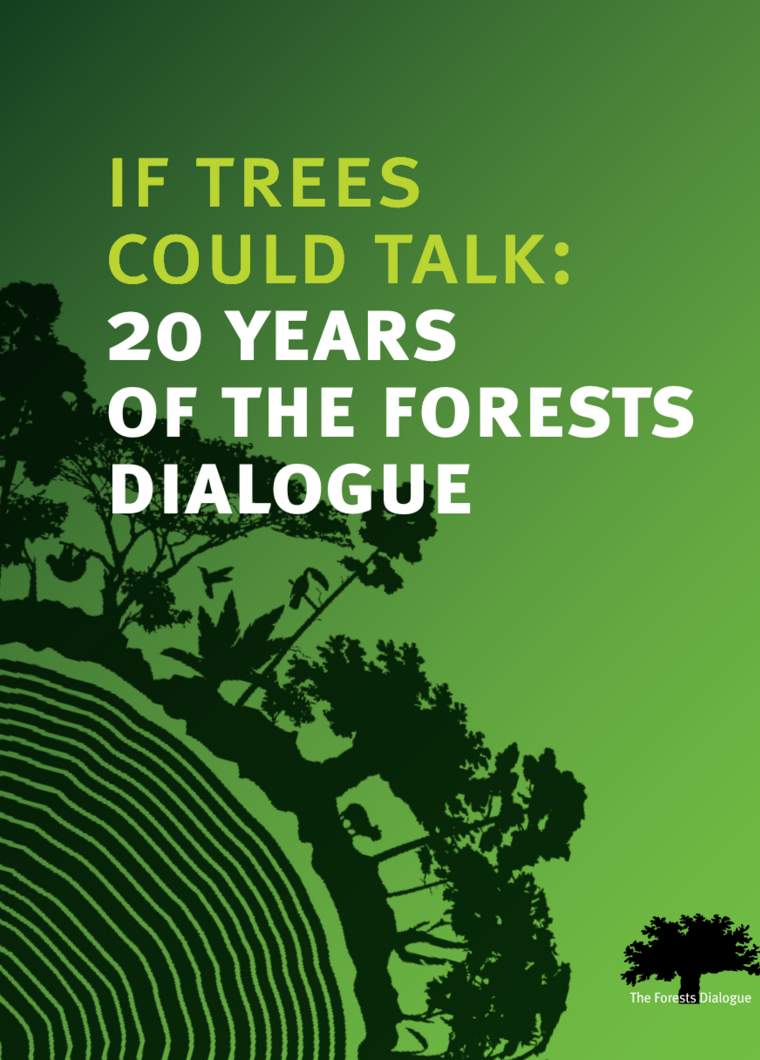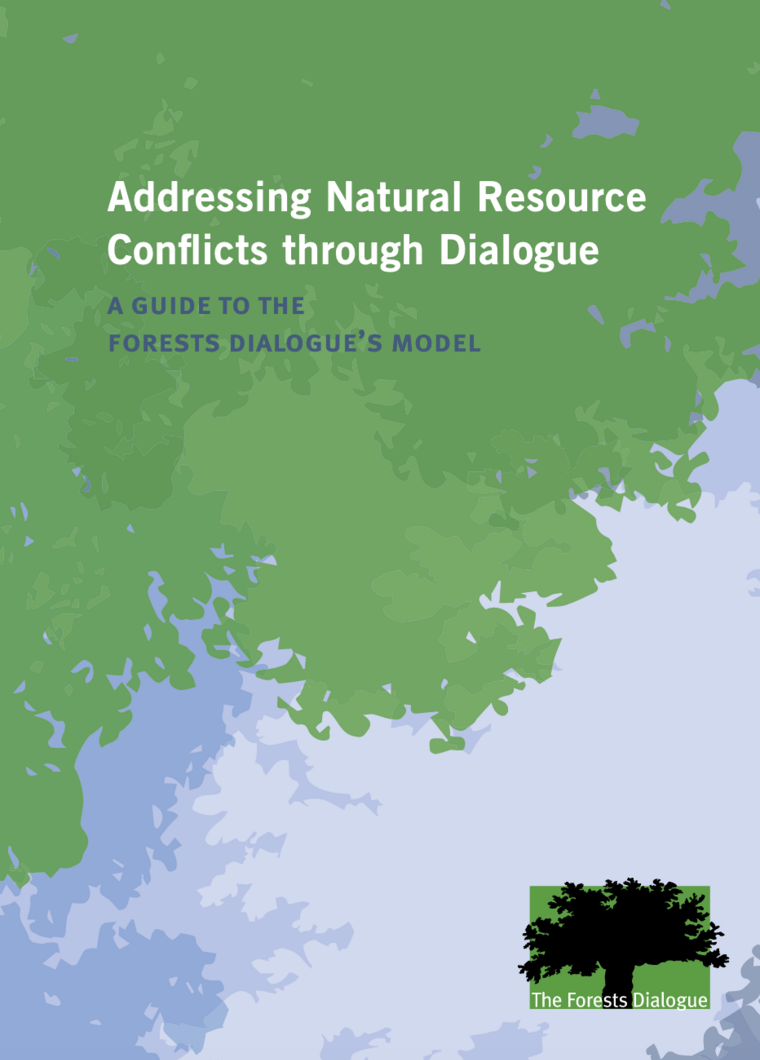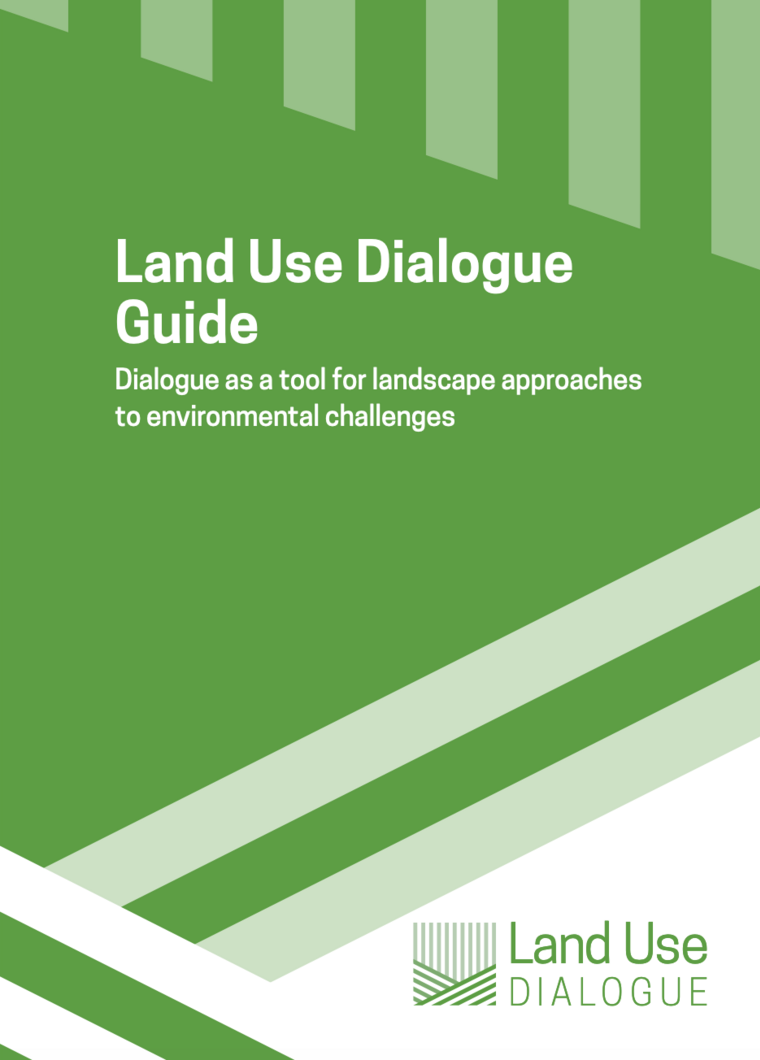Publications
The Forests Dialogue produces and publishes a variety of documents - maintained in a comprehensive library below. The majority of TFD publications are developed through TFD’s initiative process, including the following major publication types. In the lead-up to an initiative, a foundational Scoping Paper is produced to provide context for the scoping dialogue. Background Reports that provide stakeholders with relevant location-specific content are created for each subsequent dialogue following the scoping dialogue. At the conclusion of a dialogue, the co-chairs, with help from the TFD secretariat, produce a Co-chairs’ Summary Report that captures the key perspectives, discussions, agreements, and next steps from the dialogue. At the conclusion of an initiative, the Advisory Group, co-chairs, select leaders, and the Secretariat synthesize the initiative’s conclusions into a TFD Review. Additionally, Country Reports that aggregate learnings from a number of country-specific dialogues are typically produced for initiatives that involve numerous country-level dialogues, including TFD’s REDD+ dialogues. TFD also facilitates the production of guides and policy recommendations including a guide to the TFD process, the Land Use Dialogue methodology. These are geared towards practitioners or policy makers and contain actionable steps that stakeholders can take to enact change based on learnings gathered through the TFD process.
Navigate TFD’s extensive publication database using the search function below, or visit specific dialogue or initiative pages to see their associated publications.
The aim of this short briefing paper is to provide some basic information about the Democratic Republic of Congo (DRC) in order to help visitors better understand the context of this DRC field dialogue.
The Forests Dialogue (TFD) held a four day multi-stakeholder Field Dialogue on Investing in Locally Controlled Forestry (ILCF) in Växjö, Sweden from 16th to 19th April, 2012.
The Forests Dialogue (TFD) convened a second exploratory meeting—a “Scoping Dialogue”—of 28 leaders in the forest sector with an interest in the topic of genetically-modified (GM) trees, in Gland, Switzerland, on 17-18 October 2012. This
There are a few things that distinguish Swedish forests and forestry from many other parts of the world:
Flat ground. Only a tiny fraction of our forests grow on real steep slopes or in high mountainous areas. Our forest ground is normally quite flat, which makes it easy to grow and harvest timber.
Under the right conditions, locally controlled forestry (LCF) can be a strong contributor to local livelihoods, forest protection and sustainable and equitable development. Creating the right conditions, however, needs the right sort of investment.
This report draws on The Forests Dialogue’s REDD+ readiness dialogue series, which took place in six countries — Brazil, Ghana, Guatemala, Ecuador, Cambodia and Switzerland — between October 2009 and March 2011.
The Forests Dialogue (TFD) held a four day multi-stakeholder Field Dialogue on Investing in Locally Controlled Forestry (ILCF) in Yogyakarta, Indonesia from 6th to 9th February, 2012. This dialogue was hosted by Telapak and The Forest Trust (TFT) with financial support from the Growing Forest Partnership (GFP)4 and the Swedish International Development Cooperation Agency (SIDA).
Community Based Forestry Management (CBFM) in Indonesia has significant potential for revenue generation and employment. Yet it remains on the margins of forest policy and economic development planning. This paper describes current practice and constraints in CBFM, as well as the blend of regulatory reform, ‘soft investment’ and financing needed for the sector to succeed and scale.
The Forests Dialogue (TFD) convened a four-day, multi-stakeholder field dialogue on Investing in Locally Controlled Forestry (ILCF), held in Ouagadougou, Burkina Faso from 12–15 September, 2011. The Dialogue was hosted by TREE AID and sponsored by Growing Forest Partnerships (GFP) and the Swedish International Development Cooperation Agency (SIDA).
Locally controlled forests involve one billion people and one quarter of the world‘s forests, providing $75 - $100 billion per year in goods and services and a broad range of other economic, environmental, social, cultural and spiritual benefits.




